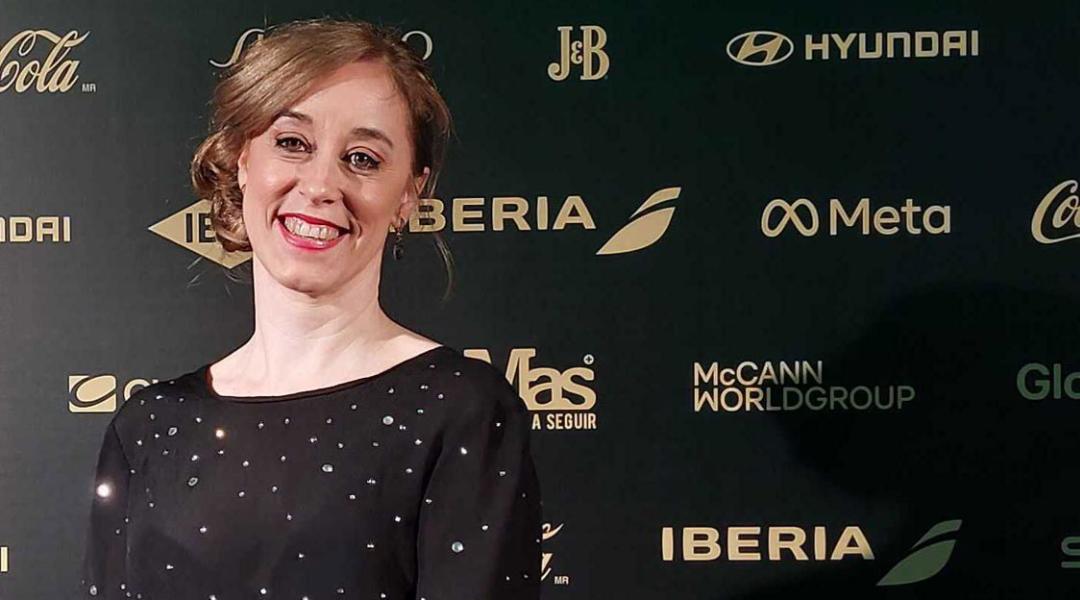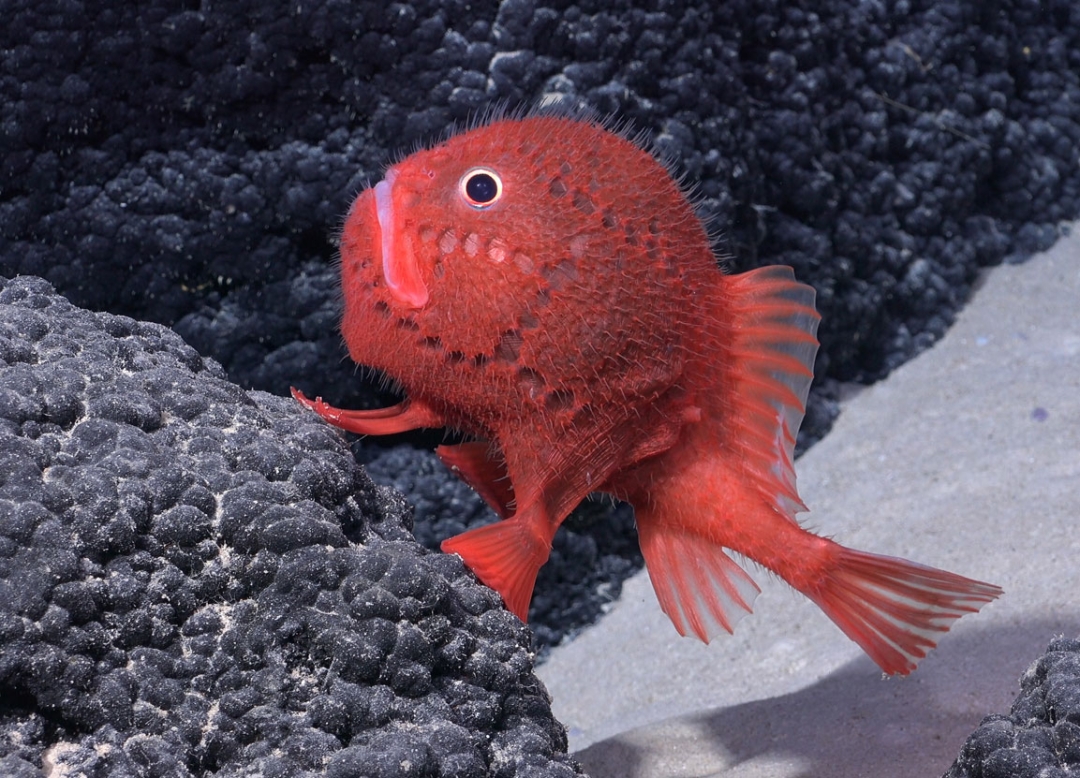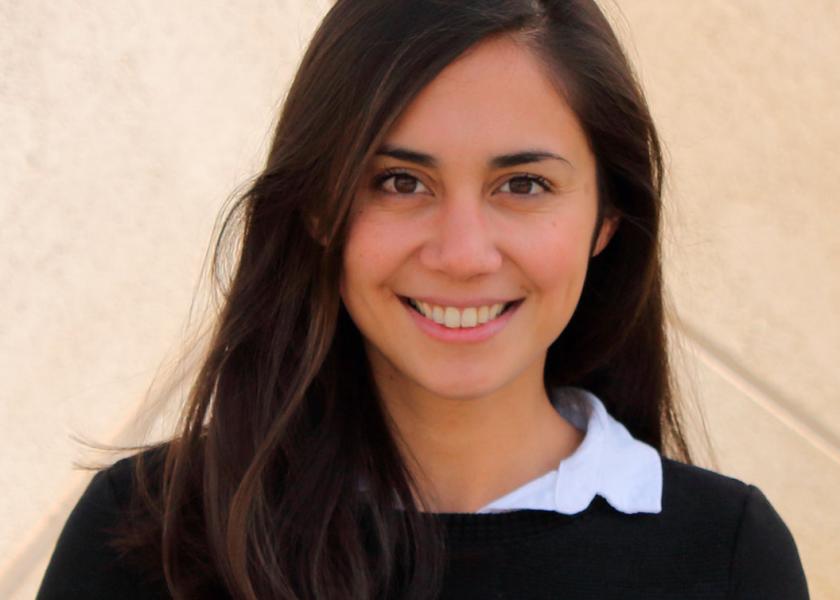Ariadna Mechó
A seabound life

The 2024 Mujeres a Seguir Awards recognised Ariadna Mechó, PhD in Marine Science and researcher at the Barcelona Supercomputing Center-Centro Nacional de Supercomputación, in the Science category for her work preserving the oceans. A Marie Curie Fellow, funded by the European Union, she demands that society listens more to scientists and declares that “it’s worth investing in ocean science.”
“The best way to protect the ocean is by getting to know it.” Ariadna Mechó (Barcelona, 1981) has been dedicated to this core idea for the last two decades, when she got on an oceanographic ship for the first time. “I’ve liked the ocean since I was little, but I fell in love with it during my first internship. Dolphins started jumping by the side of the boat and in that moment, I realised that my love for the ocean was going to last a lifetime. This is it; I thought.” Onboard the Schmidt Ocean Institute (SOI) Falkor (too), Ariadna was one of the scientists who discovered dozens of new species during an expedition around Rapa Nui Island —also known as Easter Island— (Chile), last April. A finding that sparked a great deal of international interest. “When new information about the oceans emerges, people become really interested, which is why sharing it is so important. The ocean is practically unexplored and every time we delve into it, we find incredible things,” Ariadna reminisces while campaigning for the voice of scientists. “Naysayers make a lot of noise, and our voice needs to be heard above it. We convey scientific facts, reality.” Her voice was heard loud and clear at the latest edition of the Mujeres a Seguir Awards, where she was recognised in the Science category. And, precisely as a woman who spends a lot of time at sea, Ariadna wants to send a message: “Working onboard a ship is wonderful, a real adventure, but it can also be hard if you’re a woman. This is why safety should be improved.”
One of your main goals as a researcher is to protect the oceans and their ecosystems. In a bid to raise awareness, tell us why their conservation is key.
Because without the ocean there would be no life. We tend to think of the ocean as something far away, when in fact they are an essential part of life on Earth. Directly and indirectly, we depend a lot on the oceans and their diversity. They don’t only mitigate climate change, they also provide sustenance or attract tourism, among many other benefits. In short, we wouldn’t be able to live without a healthy ocean.
The future of the planet and, therefore, of future generations is intricately connected to that of the oceans. Does protecting them today result in hope for tomorrow?
Yes, in fact, actions like protecting specific marine areas, which started a few years ago, are giving results; the follow-ups we perform indicate that ecosystems are recovering. There are no barriers in the ocean, so positive effects transcend the protected area and spread out into the surrounding areas.
“Even in the remotest areas, you always end up seeing a plastic bag or bottle. I’ve never seen a place free from rubbish”
During your research, you’ve been able to observe the impact of human actions on the oceans first-hand. What has impressed you the most?
I’ve spent almost 20 years doing campaigns on oceanographic ships and what has blown my mind the most is that we find rubbish in all samplings. Even in the remotest areas, you always end up seeing a plastic bag or bottle. I’ve never seen a place free from rubbish. I’m also astonished by the trawling indentations that boats leave on the ocean floor, as if it were ploughed.
Last April you were part of the Schmidt Ocean Institute (SOI) expedition that discovered dozens of new marine species. How many secrets are still lurking in our oceans?
Many more than we think. Every time we get to unexplored areas, we find a surprise. In fact, right now the best species classification experts in the world are working in Chile analysing the samples collected in April and it looks like they’re on a roll because practically all of them are new species. There are wonders lurking in the oceans.

One of the fish discovered during the Schmidt Ocean Institute (SOI) expedition that Ariadna Mechó was onboard. © Schmidt Ocean Institute
The purpose of the expedition was to study the movement of marine species in relation to climate change. What consequences could a change in their geographic distribution have?
Species that move towards more suitable areas in terms of temperature, oxygen, pH, and other variables will survive; those who don’t, however, could disappear. When they move, they become invasive species and can displace others by taking up their space, which has impacts even at a geopolitical level. In fact, tension is already rising because the fish associated to one country could end up in another.
The expedition team was made up of 25 scientists from different countries, as well as members of the Rapa Nui community. Does talent grow when it connects?
Absolutely. If talent is surrounded by multiculturalism and multidisciplinarity, it grows. The more diverse your surroundings, the better creative ideas and collaborations emerge. I’ve been incredibly lucky because I’ve always been surrounded by people from other countries and cultures, which has helped me develop my talent. It’s a pleasure.
“If talent is surrounded by multiculturalism and multidisciplinarity, it grows. The more diverse your surroundings, the better creative ideas and collaborations emerge”
As a member of the Barcelona Supercomputing Center - Centro Nacional de Supercomputación (BSC-CNS), what role does technology play in the fight against climate change?
At the BSC-CNS, specifically in my Earth Sciences department, we analyse how the climate has evolved and what impact it will have on health. Technology is a great ally when performing this task. For example, we try to predict how the communities of mosquitoes that spread malaria will behave, and that’s important because it will allow us to prepare for and adapt to changes. My line of research is in marine ecology, and I study how climate change will affect its communities.
“Going to places where no humans have ever been or finding unknown species is incredible. When that happens, I tell my inner child: look what we’re doing”
What has receiving the Mujeres a Seguir Award in the Science category meant to you?
It’s a huge recognition because you only see the achievements, but behind them is a lot of hard work and sacrifice. I’ve spent a lot of time abroad, alone, and far away from my family, having to create new bonds in different countries. This award, therefore, is also a recognition of everything that goes unseen and I’m incredibly grateful. I also extend it to all my female colleagues who have helped me throughout my career.
The gender gap in STEM (science, technology, engineering, and mathematics) is still a reality; how would you encourage more young women to dive into a field like yours?
It’s totally worth it. Going to places where no humans have ever been or finding unknown species is incredible. When that happens, I tell my inner child: look what we’re doing. I love my job. There’s room for young women in all fields of knowledge. We women provide different points of view, and I see this every day at the BSC; there are female engineers and researchers doing incredible things here and that’s really positive and innovative.


